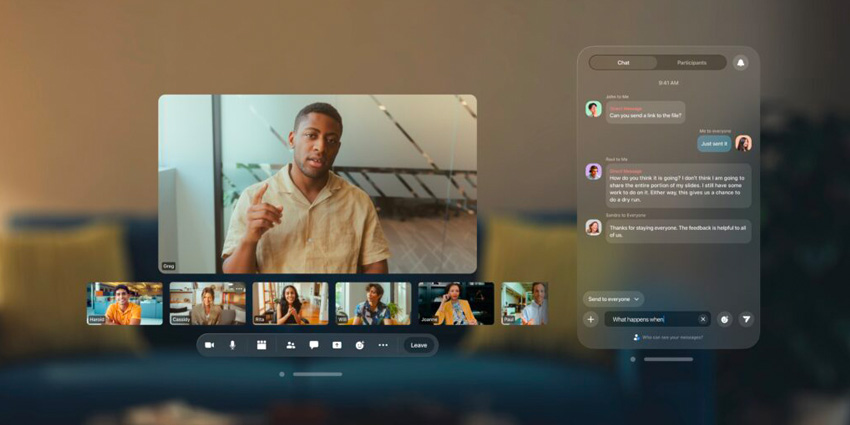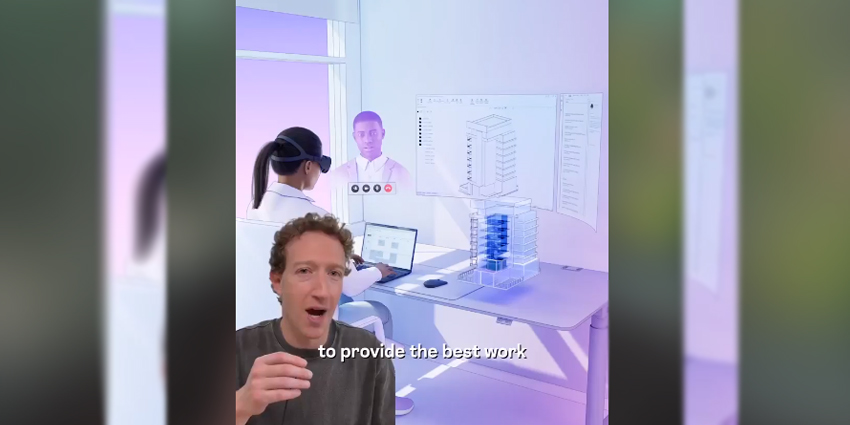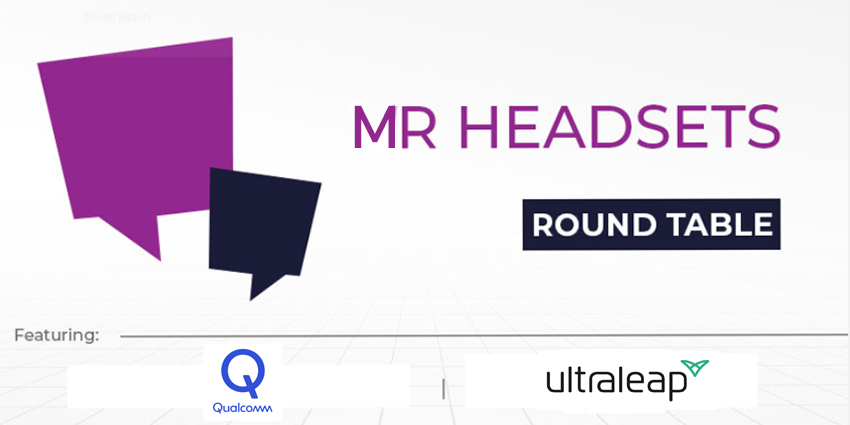The wait is over. Meta Connect 2023 just concluded. While the event focused primarily on consumer and entertainment innovations and use cases, it revealed critical details on the future of the XR industry and the technology fueling it.
The firm revealed various updates regarding its business, upcoming services, and products during Connect 2023 – most notably the Meta Quest 3.
At the same time, major workplace application developers Microsoft debuted its follow-up to Altspace VR and Immersed debuted an MR headset which could rival the biggest names on the market.
Meta Connect 2023: Keynote Speech Highlights
This week, during its Connect 2023 event, Meta unveiled information regarding the release window of the Quest 3 -the firm’s long-awaited MR headset and follow-up to the Quest Pro.
During the event’s opening keynote, Mark Zuckerberg, CEO of Meta, announced the release window, October 10, with pre-orders open now. Meta has also confirmed the device’s price point, with the Quest 3 128GB model costing $499.9 and the 512GB model costing $649.99.
Moreover, during the event, Meta also revealed details regarding other elements of its immersive product portfolio, such as Ray-Ban Stories, Spark, and Horizon Worlds, via keynotes and speaker sessions.
Speaking in person from Meta’s Menlo Park HQ, the CEO said:
We are incredibly proud to introduce Quest 3, the first mainstream mixed-reality headset. Quest 3 is the most powerful headset we have ever shipped, and it allows you to blend the physical and digital words together.
Quest 3 technical specifications include:
- 4K resolution “Infinite Display” (2064×2208 pixels per eye)
- Snapdragon XR2 Gen2 chipset
- Pancake lens
- Spatial audio
- Two RGB cameras with 18 PPD
- 8 GB of DRAM
- 515-gram weight
- 90 Hz, 120 Hz (experimental) refresh rate
- 110 degrees horizontal and 96 degrees vertical
- 58 mm-71 mm IPD lens adjustment
- TruTouch variable haptics
- Meta Quest Link cable and Air Link support
- 2.2 battery life based on “hours of usage on average”
- Wi-Fi 6E support
Meta also revealed the next iteration of its Ray-Ban product, which leverages AI assistant technology for various consumer use cases.
The AR product is leveraging Meta’s in-house AI framework to boost the usability of the product – “these are the first smart glasses that are built and shipped with Meta AI in them,” Zuckerberg remarked.
Zuckerberg also added:
One area that I am especially interested to see. Is how the advances in AI intersect with advances in building the next computing platform.
While the device will contain AR-lite features similar to the previous Ray-Ban immersive product, AI integration is a big focus for Meta. The firm uses AR-based tracking cameras and software to help the device understand the world around a user and assist them with everyday goals like finding and presenting repair guides and cooking recipes using only an operator’s voice input.
Zuckerberg explained:
I think smartglasses are going to be an important platform for the future. Not only because they’re a natural way to put holograms in the world; so we can put digital objects in our physical space. But also, becuase if you think about it, smartglasses are the ideal form factor for you to let an AI assistant see what you’re seeing and hear what you’re hearing. Before this last year’s AI breakthroughs, I kind of thought that smartglasses were only really going to become ubiquitous once we really dialled in the holograms and the displays, which we are making progress on but is somewhat longer, but now I think that the AI part of this is going to be just as important in smartglasses being widely adopted as any of the augmented reality features.
The new and improved Ran-Ban Meta smartglasses will hit store shelves on October 17 for $299 – with the firm touting improved audio, visuals, and battery life.
Microsoft to Open Mesh for Teams Public Tester
Microsoft announced on Tuesday that it will roll out Microsoft Mesh, an immersive platform for socializing, connecting with work colleagues, and ‘fostering authentic human connections’ and ‘meaningful relationships.
The new XR collaboration platform replaces Microsoft’s predecessor, AltspaceVR, and will debut in October as a public preview.
Citing figures from its Work Trend Index report, Microsoft noted that 43 percent of workplace leaders responded that “relationship building is the greatest challenge in remote and hybrid work.”
The firm continued,
Coming together in a physical space helps, but it’s not always possible—travel costs are prohibitive, real estate is expensive, and talent is increasingly dispersed. We need new ways for people to connect from different locations or geographies, using the tools they already have.
However, according to the Redmond, Washington-based firm, over 50 percent of employees were “open to using new innovations like immersive experiences for meetings and team activities.”
To start on Mesh, teams can join an immersive collaboration session via the View menu on their Teams applications and choose the ‘immersive space’ option – changing the meeting room from 2D to 3D.
The platform provides users with avatars built for either “standard 2D Teams meetings” or custom bespoke immersive spaces. The avatar system allows users to choose their appearance, hair, clothing, or facial expressions before joining a Teams meeting.
The platform also leverages spatial audio and audio zones to control conversational flows, allowing groups to speak privately rather than interrupt other conversations.
Immersed Debuts Visor XR
This week, Immersed announced its Visor XR headset portfolio for productivity. The firm is debuting a device with spatial computing features similar to the Apple Vision Pro. Moreover, Immersed is debuting its Visor product at a lower price than the Vision Pro, perhaps creating a wild card in XR competition alongside significant players such as Meta, Microsoft, HTC, Lenovo, Xreal, and Varjo.
Immersed is launching its new product in 2024 at a starting price of $499, far lower than competing device prices.
The device debut comes just as Apple launches the Vision Pro and Microsoft reveals more on its Industrial Mertaverse roadmap. With Visor XR also aiming to optimize user productivity, Immersed could help lead XR productivity use cases and the future of work alongside significant industry players.
The Visor XR headset comes with impressive features, including:
- Powerful outward-facing cameras to secure HD colour passthrough
- 2.5K or 4K micro OLED per eye (depending on the model.
- Hand & eye tracking support
- 6 degrees of freedom
- 100° Field of view
- Ultra widescreen support
- Modular mount for custom IPD, a nose insert, and a light-blocker
- The Visor supports more than five virtual screens, and the product is “25 percent” lighter than a smartphone.
The device comes in three different models. The 2.5k model costs $499.99, 4K for $749.99, and the 4K “Founders Edition” costs $999.99 while also coming with a lifetime subscription to Immersed’s premium tier and invitations to early access Visor demos at Immersed HQ. The Founders Edition also ships six months before the standard Visor 4K product.






